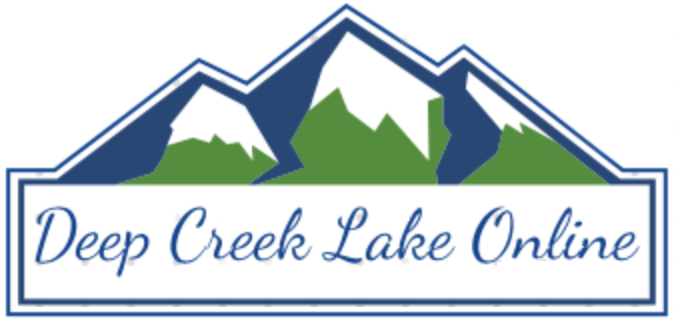The Colorado Sun
Telling stories that matter in a dynamic, evolving state.
The quantum revolution runs through Colorado. Our state is home to some of the nation’s top scientific labs and federal research facilities, as well as a booming tech industry. And now, we are poised to strengthen our leadership as the country’s premier hub for quantum technologies.
Designated a key technology by the CHIPS and Science Act, a bipartisan bill we worked to enact in 2022, quantum is already accelerating technological breakthroughs and discovering new solutions to our world’s most pressing challenges. Quantum focuses on the behavior of the smallest particles in our universe, it can be used to rapidly speed up complex computer calculations, and it has the potential to unlock practical applications in the defense, aerospace, health, cybersecurity, manufacturing and chemical research industries.
The advancements in the quantum industry can help us address everyday concerns, from tackling the climate crisis by rapidly deploying clean energy solutions to improving physicians’ ability to diagnose and treat illness.
Quantum is here and it is growing fast. There is no other state or region better prepared than ours to take on the discovery, development and deployment of this transformative technology.
The Rocky Mountain West’s leadership in quantum technology dates back over 80 years, to the establishment of the National Institute of Standards and Technology (NIST) and the Joint Institute for Laboratory Astrophysics (JILA) in Boulder and the Los Alamos National Lab and Sandia National Laboratories in New Mexico.
Since then, four Colorado scientists have won Nobel Prizes for quantum research, the most recent being physicist Jun Ye at NIST and the University of Colorado, whose work led to breakthroughs in the quantum field, including the construction of extremely precise clocks that may just be the most accurate form of timekeeping yet invented.
But the quantum revolution is not just being felt in our universities. The Rocky Mountain West has the largest consortium of leaders working to enable and grow the quantum industry.
Created to further Colorado’s quantum development and take advantage of the CHIPS Act’s opportunities, the nonprofit consortium Elevate Quantum has brought together over 70 organizations — industry groups, state and local government, national labs, higher education institutions, labor and workforce development organizations, and more — all working to expand Colorado’s leadership in quantum. This consortium is tapping into our region’s vast innovation ecosystem and harnessing expertise from our leading labs in Colorado, Wyoming and New Mexico.
This bipartisan effort will foster cutting-edge innovation and prepare the region’s workforce for the future. Elevate Quantum involves communities across all three states, from Grand County to La Plata, Laramie to Santa Fe. The Rocky Mountain West’s approach to advancing quantum technology will include rural and urban communities in this innovative project, ensuring the technologies of the future are designed and developed right here at home. The industry is projected to bring $3 billion in funding to Colorado over the next decade, and is poised to generate an estimated 30,000 new high-paying positions — many of which don’t require an advanced degree. This expansive growth will propel our state forward, without leaving anyone behind.
When the federal government in October designated Elevate Quantum as a Regional Technology and Innovation Hub for quantum, it opened the door for Colorado and the Mountain West to welcome public and private funding that can further propel the work already underway.
Right now, Colorado’s quantum tech hub is in the running for a second round of investments that will supercharge the region’s growth and ensure the Rocky Mountain West leads the way in quantum technologies. Phase II funding is expected to bring up to $75 million in additional federal support, and several times that in further economic activity.
From our national labs to our research institutions, our commercial production to our workforce commitment, one thing is clear: There is no region better prepared than the Rocky Mountain West to lead our country’s quantum future.
Rep. Joe Neguse, currently the House Assistant Minority Leader, was elected in 2018 to represent Colorado’s 2nd Congressional District. He is serving in his third term.
Sen. John Hickenlooper was elected in 2020 and is serving in his first term in the Senate after eight years as governor of Colorado.
Sen. Michael Bennet has served in the Senate since he was appointed in 2009 and was reelected to his third term in 2022.
The Colorado Sun is a nonpartisan news organization, and the opinions of columnists and editorial writers do not reflect the opinions of the newsroom. Read our ethics policy for more on The Sun’s opinion policy. Learn how to submit a column. Reach the opinion editor at opinion@coloradosun.com.
Follow Colorado Sun Opinion on Facebook.
Advocates for ideas and draws conclusions based on the author/producer’s interpretation of facts and data.
Rep. Joe Neguse was elected in 2018 to represent Colorado’s 2nd Congressional District. More by Rep. Joe Neguse
Sen. John Hickenlooper was elected to the U.S. Senate in 2020 after eight years as governor of Colorado. More by Sen. John Hickenlooper
Guest opinion More by Sen. Michael Bennet
The Colorado Sun is an award-winning news outlet based in Denver that strives to cover all of Colorado so that our state — our community — can better understand itself. The Colorado Sun is a 501(c)(3) nonprofit organization. EIN: 36-5082144
Got a story tip? Drop us a note at tips@coloradosun.com
